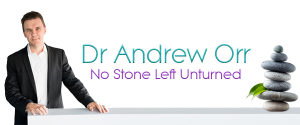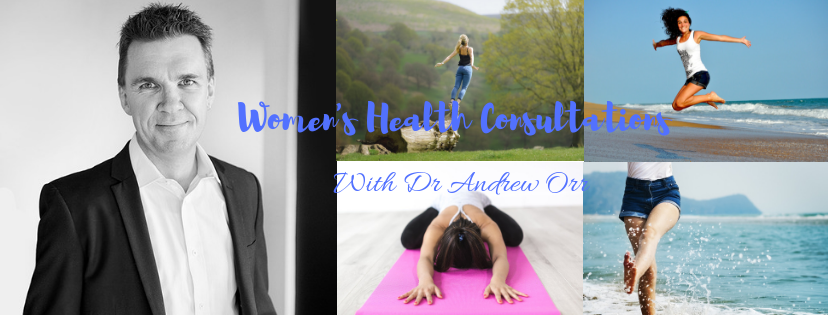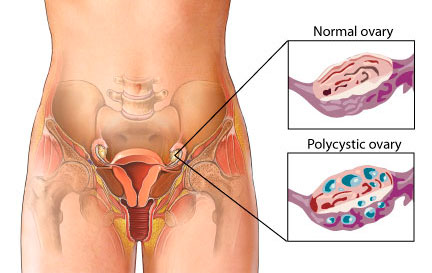Category Archives: Sexual Health
Online Women’s Health Consultations
Do you have Women’s Health issues that you need help with?
Not sure where to go, or who to see?
Sick of healthcare professionals and friends telling you that your symptoms are normal?
Do you just want to see a healthcare practitioner who listens to you and understands your health condition or disease state?
Do you wish you had someone to advocate for you when dealing with other healthcare practitioners?
Wish you had someone to guide you and help you through every step of your healthcare management?
Well, you can have someone not only assist you with your health condition and ongoing healthcare management, but also have someone guide you and hold your hand every step of the way. You will also have access to a trusted network of other healthcare practitioners, if needed.
Why risk trying to do all this on your own, or waste time and money on things that are not helping, or people who are not really listening to you. So many people try to do this on their own, or leave it up to their google search in finding someone. This really is not a great way of finding a good healthcare practitioner.
Exercises For Better Sex
As a practitioner with a special interest in the area of reproductive and sexual health, I thought it’s was time to talk about what you can do to have better sex. While good food, healthy lifestyle, mindfulness and reducing stress can help with improving the sex life and your libido, many exercises can also benefit your sexual health too. These exercises also have other benefits, while making feel good and feel healthier at the same time.
1. Cardio – Getting physical can ramp up the pleasure for you and your partner. Any activity that gets your heart beating faster and you breathing harder, from brisk walking to cycling, can boost blood flow — including to your nether regions. That’s a plus for both genders: stronger erections for men, and greater arousal for women (a whopping 169% more in one University of Texas study).
2. Weight training– Using compound lifts such as dead lifts, squats, bench press etc, all add to strengthening your core, burning fats and strengthening your whole body. They also increase testosterone and other hormones, which help with improving sex drive; increasing orgasm intensity and making you feel good at the same time.
3. Swimming– Harvard researchers found that male and female swimmers in their 60s had sex lives similar to people 20 years younger. Swimming builds endurance, boosts blood flow, improves flexibility and strength, and slashes stress. It also burns some serious calories, a plus for anyone who’s overweight (extra pounds lower libido), especially obese men with erectile dysfunction.
4. Core & Abs Work– A strong, flexible core underpins most everything you do. That includes performing between the sheets. Bonus: You may be one of the lucky people who can have an orgasm while exercising — sometimes called a “coregasm.” It tends to happen during core-strengthening workouts like crunches. Pilates is a great way to work on core and abs.
5. Kegels, Ba Wan Balls and Yoni eggs– Kegels was developed to treat urinary incontinence, these strengthen your pelvic floor muscles, and that means explosive orgasms. Yoni eggs and Ba wen balls have been around for centuries to help with developing muscles in the vagina and pelvic floor and also helping with lubrication, increased circulation and also stimulation of certain hormones such as oxytocin (the love hormone). These exercises and eggs/balls may also help with gynaecological conditions such as Adenomyosis and endometriosis too, alongside medical interventions, by increasing blood flow and assisting with pain. Women may be more familiar with Kegels balls, but probably less familiar with Yoni Eggs and Ba wen balls. Kegels exercises may also help men prevent premature ejaculation. (Always consult with your healthcare practitioner before using kegels balls, yoni eggs and ba wen balls)
6. Plank– This is a perfect way to strengthen the deepest layer of your ab muscles (transversus abdominis), along with your upper arms, thighs, and buttocks. These muscles help stabilize you so you can stay close to your partner when and where it counts most. Do it once a day, and build up to 60 seconds or longer. If it’s too challenging on your toes, try balancing on your knees instead.
7. Cat/Cow Stretch– Think of this yoga pose as another form of foreplay. It limbers your spine, helps get you into an even breathing rhythm, and improves focus — so your mind stays in the moment. Move with a steady flow, so that each rounding up (the cow part) takes a full breath out and each arching downward (the cat part) takes a full breath in.
8. Pelvic Thrusts – Whether your favourite position is missionary or cowgirl, this move is a key part of it. But powerful pushes can be exhausting when you’re out of shape. Work your glutes, calves, and hamstrings to build stamina and flexibility. Pelvic thrusts also sculpt your booty, so you feel good and look good.
9. Better Together– Couples who sweat together stay together; so make an exercise date with your significant other. Studies show that challenging physical activities spark arousal. You’ll be more attracted to your partner post-workout, too. Coordinate your actions (for example, run at the same pace) to strengthen your emotional connection even more.
As I always say to couples, is that having a healthy sex life is so important to a relationship and so vital to connection for the couple. Healthy couples have healthy sexual function and healthy libidos, so healthy diet, mindfulness and a healthy lifestyle is so important to maintaining a healthy sex life. Healthy couples also have healthy babies.
Regards
Andrew Orr
-Leaving No Stone Unturned
-Women’s and Men’s Health Advocate
-Master of Women’s Health
-The Women’s Health Experts
Having More Sex Enhances Positive Relationship Satisfaction
While part of my job is to make sure couples are having enough sex, in order to have babies, part of my education to couples is about maintaining a health and happy relationship too.
Sex and intimacy is a big part of a relationship and it helps couples connect on a much deeper level than just being about the act of pleasure. While that part is nice too, couples still need to learn to connect and share on a much deeper level too.
I always find it sad to see couples who aren’t having sex anymore and are so disconnected. It is also sad to see my fertility couples stop this connection, once the “Job is done” and the baby making is complete.
I always explain that if they cannot connect and maintain that healthy relationship now, how are they going to survive once a baby comes along. It is something that many just don’t think about and often it all becomes about the all consuming goal of “I want a baby”. But at what cost to a relationship?
I do also understand that when couples have been trying so long and there are failures and fertility drugs mixed into the equation, it does become hard. But, you still need to move past that and still find time to connect, otherwise the relationship will die.
I get all the reasons why, but at the end of the day, that lack of connection is a big part of the reason so many couples relationships end. For couples going through fertility issues, there is up to an 80% separation rate and this is often tied back to that lack of physical and emotional connection, through bonding through sexual connection.
A health relationship should be having intimacy and sex at least 1-3 times per week and this helps to promote this deep bonding and connection needed for a relationship to survive.
Regular intimacy and sexual activity can also help promote good physical health and also help with mental and emotional health too. A relationship isn’t all about the sex, but it sure helps make it stronger, as many studies like the one quoted below have shown.
When was the last time you connected on this deep level with your partner?
Might be time for a weekend away, or plan those regular date nights real soon.
Source: Hicks LL, McNulty JK, Meltzer AL et al. Capturing the Interpersonal Implications of Evolved Preferences? Frequency of Sex Shapes Automatic, but Not Explicit, Partner Evaluations. Psychological Science. 2016.
Regards
Andrew Orr
-Leaving No Stone Unturned
-Women’s and Men’s Health Expert
Women with PCOS often have to wait 2 years and often see multiple healthcare professionals before diagnosis is made
Polycystic ovary syndrome (PCOS) is the most common endocrine/gynaecological/reproductive disorder — and most common cause of infertility — affecting 9 to 18 percent of women around the world.
Despite the prevalence of this chronic condition, one-third of women diagnosed with PCOS saw at least three health professionals over the course of two years before receiving a diagnosis, according to a study from the Perelman School of Medicine at the University of Pennsylvania.
The study, published in the Journal of Clinical Endocrinology & Metabolism, is the largest to date examining time to diagnosis, and reveals what the authors say are “major gaps” in education and support for women with the condition.
As a healthcare practitioner with a special interest in this area, I see these same issues with so many women waiting years to get a proper diagnosis and they have seen multiple healthcare professionals in both the medical and complementary medicine profession.
The signs and symptoms of PCOS are very clear and easily diagnosed, but many healthcare professionals end up focussing on one symptom, while overlooking the bigger picture and then these poor women get their condition missed.
Many practitioners and public alike, do not understand the difference between PCO (Polycystic Ovaries) and PCOS (Polycystic Ovarian Syndrome) either and this creates a big issue as well. These days the two condition are actually put under the heading of the one condition, when this is not entirely true. For more information about PCO and PCOS, please click of this link (click here)
PCOS primarily affects women of reproductive age — most often between the ages of 18 to 35. The most common signs of PCOS are:
- Absent, Irregular and Inconsistent menstrual periods,
- Acne
- Excess hair growth (some women can have hair loss too)
- Central obesity
If a women presents with Acne, irregular periods, absent periods etc, there is a good chance that she may have PCOS. The problem for these women, as explained before is that healthcare providers and placing too much emphasis on only one of these symptoms, which is usually the Acne, or just that the cycle is irregular. Then women are then put on the Pill and these symptoms are masked for years, until they try and have a child and have difficulty doing so.
Women with PCOS also have an increased risk of type 2 diabetes, gestational diabetes, metabolic syndrome and anxiety and depression, and studies have shown that the longer it takes for the condition to be diagnosed, the greater the patient dissatisfaction.
These new results are concerning for those of us who do know how to deal with PCOS and other gynaecological conditions properly. These women should not be having this conditions missed. The other issue is that not only do women often wait several months or even years before care providers are able to diagnose the condition, but even after diagnosis, patients are often unsatisfied with the information and support they receive. It is such a vicious cycle.
But let’s not forget out Endo Sister’s who have endured the long road to diagnosis and management for their disease. It can often take up to 12 years for their diagnosis and again many of them have their condition missed and are dismissed. It is again such a vicious cycle of mismanagement and focus one symptoms before someone finally properly diagnoses their disease. Then many of these also complain of the management and treatment after diagnosis. We also know that many with endometriosis, also have PCOS. These two disease states can go hand in hand and both can equally be missed and dismissed.
Based on the study findings, the authors are calling for the development of international evidence-based guidelines, co-designed consumer and health professional resources and international dissemination to improve diagnosis experience, education, management and health outcomes.
Too right they should be calling for better diagnosis and better education and training for these healthcare professionals. If you don’t know how to do your job properly, or it is out of your scope of practice, get out of the way and refer these women onto people who are trained to diagnose and manage these conditions properly.
Lets, help put and end to PCOS and also put an end to Endometriosis as well. Let’s break the silence and help women get the diagnosis and care they need. Early intervention and treatment is crucial for any disease state and let’s help women get this care sooner.
Take care
Regards
Andrew Orr
-Women’s and Men’s Health Advocate
-“Period Pain IS NOT normal”
-“Leaving no Stone Left Unturned”

Journal Reference:
Melanie Gibson-Helm, Helena Teede, Andrea Dunaif, Anuja Dokras. Delayed diagnosis and a lack of information associated with dissatisfaction in women with polycystic ovary syndrome. The Journal of Clinical Endocrinology & Metabolism, 2016; jc.2016-2963 DOI: 10.1210/jc.2016-296
How Do Orgasms Affect The Brain?
How Do Orgasms Affect The Brain?
In the words of the late George Michael “Not everybody does it, but everybody should”, many of us forget the health benefits and relatuionship benefits of a good orgasm. Famous scenes of Meg Ryan simulating how an orgasm makes you feel and onlookers saying “I’ll have what she is having” have all of us nodding our heads in agreement.
There is no doubt that orgasm is one of the most pleaurable and intense experiences the body can enjoy on our own, or with another. Many of us try to replicate other ways to pleasure the body and induce hormone like reactions like orgasm can.
This is why so many people dive into a bar of chocolate each night, trying to get some of the seretonin and oxytocin effects siimilar to a good orgasm. Maybe people should be ditching the chocolate, ditching TV, or social media and everyone elses sex life, and just heading straight to the bedroom for some action of their own. It would be more pleasureable and much healthier for the body and brain overall. Hey, you could be using the chocolate in other ways to help enhance those hormones on the bedroom.
So why does orgasm affect us in the way it does?
New research, reported in the journal Socioaffective Neuroscience and Psychology has set out to gain a better understanding of how the human orgasm affects the brain.
This new research has now shed some light on how orgasm affects the body and how it also affects the brain. When it comes to the human orgasm, research has primarily focused on how this intense feeling of sexual pleasure has evolved. In a new study, researchers have delved into a relatively understudied area of human climax: how orgasms affect the brain.
Orgasm can be described as a powerful, pleasurable release of accumulated sexual tension and is perceived as the epitome of sexual pleasure for both men and women. During orgasm, an individual may experience a rise in blood pressure, an increased heart rate, heavy breathing, and rhythmic muscular contractions. The lasting benefits on mood and ones health are often understated and many times forgotten and something that all of us need to be thinking about more.
But while the signs and sensations of an orgasm might be clear, the underlying mechanisms of this sexual response – particularly its neurophysiological effects – remain uncertain.
Previous Studies have shown that orgasm plays a role in ovulation, orgasm helps reduce depression and mood disorders, helps reduce inflammmation of gynaecological conditions, reduces certain cancers, helps you keep fit and also helps with maintaining long lasting relationships.
How orgasm can induce a ‘sexual trance’
An abundance of studies and literature were analysed by researchers, that have investigated the brain and body’s response to sexual stimulation. This information was then used to shed light on how rhythmic sexual activity affects rhythmic activity in the brain. If rhythmic sexual stimulation is intense enough and it lasts long enough it can cause the body to experience a “sexual trance,” where sole focus is on the immediate sensation experienced. These teachings are often taught by those that practice tantra.
While some of this has been known through many ancient tantric sex practice, having research to back up these practices, could change the way people view orgasm and their sexuality. Sex is a source of pleasurable sensations and emotional connection, but it is also actually an altered state of consciousness.
Brain responses to orgasms the same way it responds to dance and music
Additionally, researchers found that the way the brain reacts to rhythmic sexual stimulation is comparable to the way it responds to rhythmic music and dance. Here the study also showed that as humans, dance may have served as a test of fitness for a potential mate. Researchers added that rhythmic music and dance have served as a key part of mating for hundreds of millions of years, and these findings are consistent with this fact.
We do know that fitness and health of the body, also corresponds to ones sexual health and that exercise and keeping healthy is important to maintain healthy reporductive and sexual function. Good orgasms come from a healthy body and healthy reproductive organs.
Before this paper, we knew what lit up in the brain when people had orgasms, and we knew a lot about the hormonal and neurochemical factors in non-human animals, but we didn’t really know why sex and orgasm feel the way they do. Hopefully this sort of research paves the way for further studies in this area and helps us understand the health, emotional and physical benefits of regular orgasms.
In upcoming posts I will talk about what you can do to enhance a good orgasm and also what affects orgasms too. I will also talk about differing libidos and how to increase your libido if that is waivering, or not existant at all.
Source:- Journal Socioaffective Neuroscience and Psychology (Socioaffective Neuroscience & Psychology 2016, 6: 31763 – http://dx.doi.org/10.3402/snp.v6.31763)
Regards
Andrew Orr
Women’s & Men’s Health Advocate
“Leaving No Stone Left Unturned”
What a Proper Menstrual Cycle Should Be Like
I have travelled around this country presenting to both healthcare practitioners and as part of women’s health work shops and I am still amazed that many healthcare practitioners and the general public alike, still do not know what a proper menstrual cycle should be like.
So many women still believe that many of the abnormal symptoms they put up with daily are actually normal and believe that they just have to put up with them. There are many healthcare providers reinforcing this too.
OMG, if the healthcare providers have no idea, then how to we expect everyone else to know. This is why we are seeing so many women put up with gynaecological conditions such as Endometriosis, Adenomyosis, PCOS and many other symptoms they face on daily basis.
Every day I get emails and Facebook messages from women, or see them in clinic, asking me “What Should a Proper Menstrual Cycle Should Be Like?”
I also get asked if PMS, menstrual irregularities and period pain is normal and I have to tell them it is not. To put it bluntly, PMS, severe PMS (known as premenstrual dysphoric disorder-PMDD), irregular cycles and period pain IS NOT normal.
Women should not experience pain during their menstrual flow, and they shouldn’t have to put up with all the horrible symptoms leading up to their menstrual cycle either.
A slight bit of discomfort may be considered normal, but pain and having to take pain killers for that pain, is not normal at all.
The fact is that only 20-25% of women actually get menstrual pain and severe symptoms of PMS. Once there are a greater number of people with a condition, medically the condition is then classed as normal, meaning that a portion of the population get it.
But the problem is menstrual pain and irregularities are not normal and these are signs of problems in the body that need to be checked out by a gynaecologist, reproductive medicine, or a women’s health specialist.
The sad thing is even then, some women are being missed, or offered the supposed quick fix, or patch, that will not fix their issues. The worse things is, in my line of work is that when these things are missed and masked and left for too long, women wake up one day and want babies, and can’t have them, or struggle to have them.
Once again menstrual pain and irregularities are not normal and no matter what mum, your best friend, or you GP says, women should not have to put up with these issues. Period pain and menstrual irregularities are not normal.
Going on the oral contraceptive pill (OCP) will not fix the cause of the issue either. Sure, it can offer some symptomatic relief for some, but it usually just masks a condition and this is why women need to see a gynaecologist or a women’s health specialist for any gynaecology issue.
Masking an issue over the long term can not only make a condition becomes worse, it can also have an impact on future fertility and chances of conception, and this is what many seem to be forgetting. Masking symptoms is not the answer and women need to be informed of all their choices and the consequences of masking a gynaecological issue.
I also need women to know that the contraceptive pill does not regulate a normal menstrual cycle. It causes a withdrawal bleed and does not regulate a normal menstrual bleed. That is a fact. The withdrawal of hormones causes the bleed. The is not a normal period by any means.
So, I am going to tell you what a proper a menstrual cycle should be like and I’m going list what it should be like below. So that way if you are wondering why your menstrual cycle has gone crazy and you cant get enough Ibuprofen, or naprogesics, into your body when you get your cycle, then please remember the list below.
It is so important that I tell everyone what a proper menstrual cycle should be like. If it isn’t like the one I describe you better book in to see me soon.
But, for those who may be trying to have babies, or think that all is OK, don’t be fooled into think that you don’t have a gynaecological issue because you don’t have pain, or irregularities either.
A significant portion of women with endometriosis are asymptomatic (Meaning no symptoms). Many women with PCOS also have regular cycles and all body types can have this disease, not just overweight women.
It is so important for all women to get regular gynaecological check ups by a gynaecologist, a women’s health specialist, or a reproductive medicine specialist, especially if you are trying to have babies and nothing is happening.
What a proper menstrual cycle should be like
- A proper menstrual cycle should be 26 –32 days in it’s length.
- It should be 4 days flow, 5 at the most. Any shorter than 4 days is too short and any longer than 5 days is too long. This isn’t good.
- You”Should Not” get any pain at all. Maybe a slight bit of discomfort is normal, but pain is not normal.
- You “Should Not” get clotting, spotting, etc.
- You “Should Not” get heavy bleeding, or abnormal bleeding in between cycles.
- You “Should Not” get severe breast tenderness, lots of bloating, increased fluid retention, erratic changes to the moods, such as lots of tears or irritability.
These are all signs of irregularities and need to be addressed and many of the causes are above.
Just remember that if you do get bad period pain, or your periods are irregular there is a good chance you may have a gynaecological condition and this need to be investigated.
Don’t let people keep fobbing you off, or keep telling you that the contraceptive pill will “fix” these issues, because that is not entirely true. If there is pain, or irregularities, it means that something is wrong, or out of balance, and it needs to be investigated and managed properly.
If you need help with a women’s health issue, please call my friendly staff and find out how I may be able to assist you.
Take Care
Regards
Andrew Orr
-Master of Women’s Health
-Women’s and Men’s Health Advocate
-No Stone Left Unturned
-The Endometriosis and PCOS Experts
You May Ovulater
The traditional theory that women have the potential to ovulate at one time in the month (being around day 14) is actually been proven to be wrong and is something many have known for a long time
This research was first published back in 2000 in the British medical journal and then research, published in the journal Fertility and Sterility in 2003(2003;80: 116-22 [PubMed]) could explain why the “rhythm” method of contraception is so unreliable and why women who take hormonal contraceptives sometimes become pregnant.
Researchers from these studies did daily ultrasound scans on women who apparently had normal menstrual cycles. Some were nulliparous; others had had up to three children. They found that all of the women produced at least two and sometimes 3 major waves of follicular development.
The existing theory held that at the beginning of each menstrual cycle, 15 to 20 follicles begin to grow in the ovaries and that one of them develops into a mature egg at roughly the middle of the cycle. The research showed that 40% of the subjects had the clear biological potential to produce more than one egg in a single month. Moreover, they could be fertile at any time of the month.
“These studies have actually caused the rewriting of the human reproduction textbooks” The leading researchers have explained. “It explains why natural family planning often doesn’t work, why hormonal contraception sometimes fails, and why we see fraternal twins with different conception dates.” The studies have also helped to improve assisted reproduction success rates too and why we see some women ovulate again (as part of their natural cycle) after hormone induced ovulation.
Research published back in 2000 that was published in the British medical Journal also showed that “Ovulation – Fertile days are unpredictable”
The timing of the fertile window is highly variable and to assume that ovulation occurs on day 14 or between day 10 and day 17 is based on outdated information.
Fertile days are unpredictable, and can fall anytime during the menstrual cycle-even for those women with regular Cycles. There is only a 10% probability of being fertile in the fertile window (day 10-17) as identified by Clinical guidelines and more than 70% are in the fertile window before day 10 or after day 17 of their cycle.
There is also a 1-6 % chance of being fertile during a menstrual phase of the cycle. (British medical Journal 2000 321:1259-1292)
This is why couples need to be having regular sex in a cycle, if they want to conceive and that they need to stop just trying in the so called old school thinking of the “Fertility Window” as identified as day 14, or between day 10 to day 17 of the cycle.
Like anything in life, if something isn’t working, then you need to change what you are doing. If that doesn’t help, then you need to get help from a professional.
I have helped over 12,500 babies into the world and this is part of what I teach my couples and part of my multimodality fertility program.
If you are having trouble having a baby, then call my staff and find out more about my fertility program and how we may be able to assist you in having your little miracle.
Take care
Regards
Andrew Orr
-No Stone Left Unturned
-Women & Men’s Health Crusader
-The International Fertility Experts









